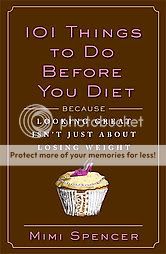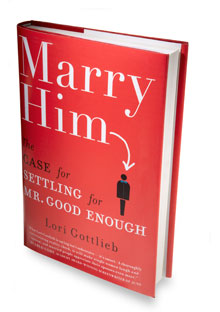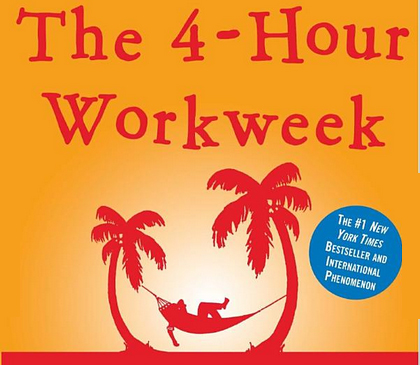101 things to do before you Diet by Mimi Spencer.
Marry him: The case for Settling for Mr. Good Enough by Lori Gottlieb
Into the Wild by Jon Krakauer
Bossy Pants by Tina Fey
I loved it. Learning about her backstory helped bridge some of the gap between her 30 rock writing and her SNL jokes. It was especially funny seeing some of the same themes come up. The flat footed overeater she portrays in 30 rock was a tragic projection of one her jerk ex boyfriends. I felt her pain, I really did.
My biggest qualm, however, is too salient to ignore. I just wish she knew what she was writing about before she started writing. The book is hilarious, I give you that, but I think it would have been more powerful if she chose which story to tell. A whole book could have been written about her childhood, her rise to fame, and even how she handles being a successful woman today. Having all of that fascinating material glazed over in the book just made it a shallow read.
The lack of message was also evident in the pacing. I was sucked into her backstory for the first half, then sent into a sporadic blogpost style opinion essay about her random thoughts for the second. I was especially annoyed by her should-I-or-shouldn't-I essay about having a second child. It came off as a panicked journal entry and should have ended on the cutting room floor.
But its not often that great books are wonderful books, and this was a lovely and entertaining read. I mean, if I am going to laugh aloud in crowded coffee shops, then I should at least give the same impression of pleasure to you. Go read this book, you'll have fun.

Read the New York Times book review HERE.
One Simple Idea by Stephen Key

I picked up One Simple Idea by Stephen Key because it was recommended to me by Tim Ferriss in The 4 Hour Work Week. I immediately didn't like it because the preface indicated that the author was prompted to write the book after the success that he gained after Tim Ferriss took his class. I suppose there are some people that really make a difference in this world.
Stephen Key's philosophy is that one can become rich, not by making a product, but by thinking of it then selling it. The bulk of the work is getting a company to buy it. He makes his money off of royalties and licensing.
This book made me want to do something. I wanted to go to the mall and watch people buy things, chat up store clerks and figure out what people actually want to buy. It made me want to be an inventor. I wanted to start a design company and cold call companies.
This book is equal parts encouraging and resourceful. It builds you up, telling you that anyone can do this, and then gives you the tools. The only downside is that the tools are a real bummer. Key doesn't lie, its a lot of hard work to play with the big boys and market to large companies. To be inspired you had to shift through 150 pages of procedure on the best way to protect your ideas and what items to put in your negotiation clauses. It wasn't what I bargained for. However, I was convinced at the end that it only took 150 pages of knowledge to start my new dream of being an inventor.
Overall I think this book had a rather high rate of return. I read it in a few days and in return I was empowered with entrepreneurial spirit. People on Amazon seem to think so too, so far it has been getting 100% 5 star reviews.
Women Who Love too Much by Robin Norwood
What it's about
This non-fiction is a self help by exposition. The story is driven by the tales of many women who have somehow contributed to their own demise by pursuing and falling for toxic men. The stories are dramatic, but not extraordinary. The author presents them in a way that exposes relationship follies that we make in our own, healthy relationships. We are able to make the conclusions by ourselves, but she also creates a take-away checklist at the end, giving us a few cardinal rules of relationships.
Why it inspires
Women often blame men for their crappy lives. Norwood's book tells us that perhaps it is our own toxicity that is causing our crappy lives. She does it meaningfully and gently, allowing everyone to take away a positive message. It is not just a guide on how to break up a toxic relationship, it could also inspire growth in a healthy relationship by allowing us to recognize our toxic behaviors
Who might be interested
Women in relationships. All women in relationships, especially those that use their relationships like drugs. You don't need to want the change to benefit from this book.
I found this to be an excellent read myself.
Interested in this book? Buy it online here
This is not a sponsored advertisement.
Blink by Malcom Gladwell

This nonfiction is structured as a series of anecdotes. Each anecdote is about how some snap decisions are magically and inexplicably right and how we rely on them to make the right decisions. For instance, he tells the story of a psychologist that can tell if a married couple will still be together in 15 years from a first impression. He also highlights an anecdote about how a few police officers incorrectly profiled a black man and shot him dead within 5 seconds of meeting him. His point is oblique. The book is entertaining because it frames multiple entertaining stories for us, but it is weak for the same reason. If he really knew what he was saying, he would have told us what he meant opposed to circling his idea with 200 pages of examples. He probably would have only needed one conclusion rather than the three disguised as concluding chapters and an afterward.
The author has a heart of gold, and his optimism shines through. He is telling us that our instincts are powerful and we should find out how to harness them. The anecdotes are simple examples of amazing people that have been able to use their instinct and powers of first impression like magic tricks, and also amazing people who are overconfident in their abilities to mind read. I didn't like how he told the story, but I liked what he meant. He is telling us to trust ourselves.
Who should read it.
- People who are fans of Malcom Gladwell. He is really creating a genre.
- People who are fans of the New Yorker
- People who are fascinated with amazing people. There is a bit of hero worship with the people in the anecdotes in this book.
- People who think that there is something more than hard core facts and rational when it comes to decision making -- this book will re-enforce your beliefs
- Those left-brain people who discount thier feelings when making decisions -- this book will challenge your beliefs
4 Hour Work Week by Tim Ferriss
Although his techniques are unorthodox, it is fun to imagine a life where we aren't stuck in a box, being forced to work until a miracle age when we can stop. You too can travel the world on all the money you need by starting a business that makes money for you. It sounds plausible, and if anything, it can convince you to do something you may never have thought of doing before.
Leadership and Self Deception
Salary.com recommended this book as one of the 13 top business books that could change my life. I almost immediately bought it for 8 dollars from the Barnes and Nobles NookBook store. I laughed when the book described itself as "straightforward". How astute.
It wasn't a great read, persay. The charactors weren't very fleshed out and I had a strange feeling that the reactions the charactors were having were what the writers wanted the readers to be having. The writing sounded a lot like this:
My only qualm is that this story about a box isn't really what I thought I was getting into. I thought it was about deciving yourself of your original intentions, say in choosing a career. Oh well. At least now I have the feeling that I can rise above interoffice politics.
The Martha Rules: 10 essentials for achieving success as you start, build, or manage a business by Martha Stewart
 I am absolutely not a Martha-hater. I love her, and I see the value of homemaking and entertaining. Still, I was not happy with this book. As most people playing with the idea with entrepreneurship, I want more than anything a close friend to propell me forward towards this task. Martha is not that person. She tells us in the first chapter that she, among her entreprenural minded friends, is the naysayer. That... that just isn't want I wanted. This book was not inspiring, nor did it really have a lot of new information.
I am absolutely not a Martha-hater. I love her, and I see the value of homemaking and entertaining. Still, I was not happy with this book. As most people playing with the idea with entrepreneurship, I want more than anything a close friend to propell me forward towards this task. Martha is not that person. She tells us in the first chapter that she, among her entreprenural minded friends, is the naysayer. That... that just isn't want I wanted. This book was not inspiring, nor did it really have a lot of new information. 






